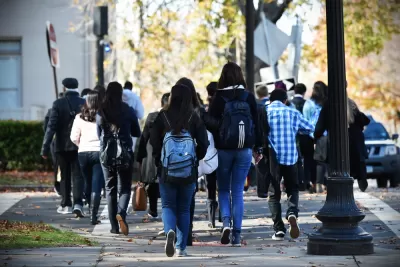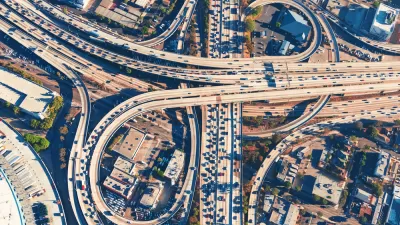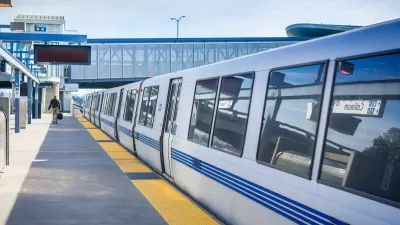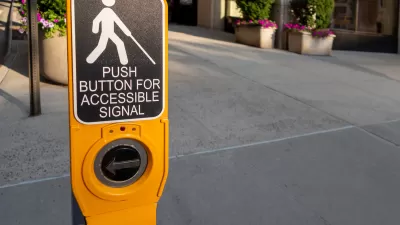An initiative to promote pedestrian-oriented infrastructure investments in Washington state highlights the lessons that policymakers can learn from people who rely on walking and public transit.

With transportation emissions accounting for almost half of Washington state's greenhouse gas emissions, making a meaningful impact calls for a reduction in reliance on personal vehicles. What better source for learning about a car-free lifestyle, asks Anna Zivarts, than those who already don't drive? A quarter of Washingtonians don't have driver's licenses, and many more don't own cars due to high maintenance costs, health issues, or personal choice. Yet policymakers consistently fail to design public infrastructure that effectively serves pedestrians and transit-dependent people.
"To get where we need to go in a system not designed for us, those of us who can’t drive have become experts in weaving together bus schedules across counties, in planning our grocery trips and doctor’s appointments days in advance so we can request rides. We have figured out how to patch together accessible ways to get to the local community center, and to cross highways that not only block fish passage, they keep us from visiting our neighbors. And if you ask us, we can tell you exactly what kinds of investments are needed to make it possible for more people to be less dependent on driving."
To bring these issues to light, the Disability Mobility Initiative is creating a storymap that features "interviews with people from across our state who rely on transit, paratransit, walking, rolling or community rides." The initiative aims to highlight how a lack of accessible infrastructure makes more people reliant on cars and suggest investments that can lead to a more equitable, inclusive, and sustainable transportation system.
FULL STORY: As we aim for less reliance on cars, learn from those who don’t drive

Alabama: Trump Terminates Settlements for Black Communities Harmed By Raw Sewage
Trump deemed the landmark civil rights agreement “illegal DEI and environmental justice policy.”

Planetizen Federal Action Tracker
A weekly monitor of how Trump’s orders and actions are impacting planners and planning in America.

The 120 Year Old Tiny Home Villages That Sheltered San Francisco’s Earthquake Refugees
More than a century ago, San Francisco mobilized to house thousands of residents displaced by the 1906 earthquake. Could their strategy offer a model for the present?

LA’s Tree Emergency Goes Beyond Vandalism
After a vandal destroyed dozens of downtown LA trees, Mayor Karen Bass vowed to replace them. Days later, she slashed the city’s tree budget.

Sacramento Leads Nation With Bus-Mounted Bike Lane Enforcement Cameras
The city is the first to use its bus-mounted traffic enforcement system to cite drivers who park or drive in bike lanes.

Seattle Voters Approve Social Housing Referendum
Voters approved a corporate tax to fund the city’s housing authority despite an opposition campaign funded by Amazon and Microsoft.
Urban Design for Planners 1: Software Tools
This six-course series explores essential urban design concepts using open source software and equips planners with the tools they need to participate fully in the urban design process.
Planning for Universal Design
Learn the tools for implementing Universal Design in planning regulations.
Ada County Highway District
Clanton & Associates, Inc.
Jessamine County Fiscal Court
Institute for Housing and Urban Development Studies (IHS)
City of Grandview
Harvard GSD Executive Education
Toledo-Lucas County Plan Commissions
Salt Lake City
NYU Wagner Graduate School of Public Service





























